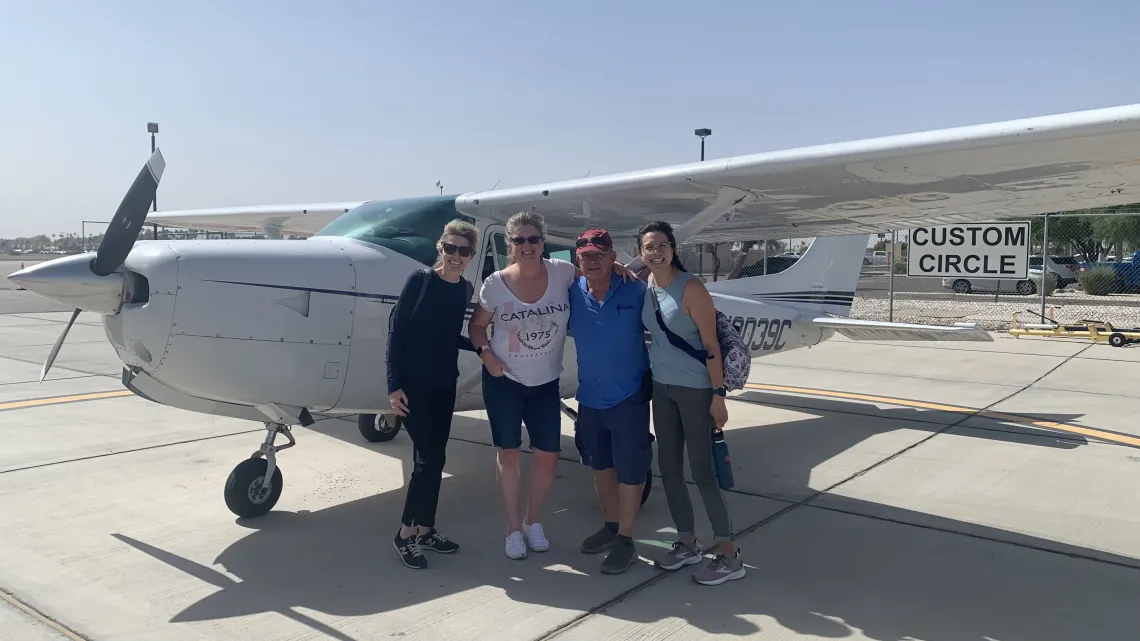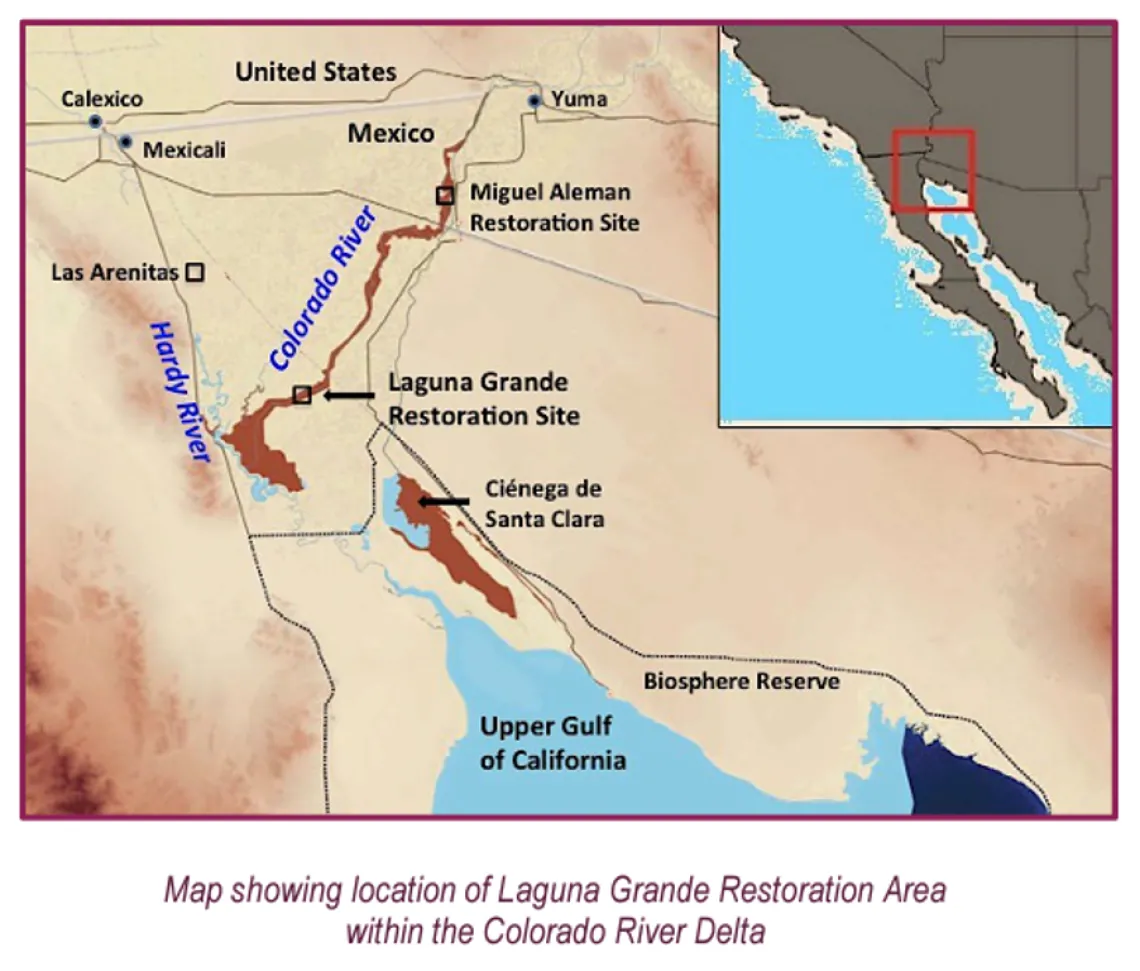Viewing the Colorado River Delta from Above

The Colorado River has been capturing national headlines for several years now as users in the basin are facing shortages due to long-term drought caused by climate change. The basin is home to some 40 million people, including 30 tribal nations, and traverses the US-Mexico border. Collaborative efforts in the basin are working to restore the river’s delta, which has been reduced to a mere 10% of its original size due to diversions upstream.
In May 2022, Udall Center Director Andrea K. Gerlak was invited on an aerial tour of the Colorado River Delta by Planet Women, an environmental NGO that invests in women-led, women-focused solutions to the environmental crisis. Through a partnership with Planet Women and Lighthawk, volunteer pilot Will Worthington flew the small group some 5,000 feet over sea level from Tucson, Arizona, to where the river flows into the Gulf of California to view agricultural and mining sites, dams and diversions, and irrigation canals; and restoration sites like the Laguna Grande.
“It is an exciting time in terms of the larger efforts around management of the Colorado River and restoration efforts of the Delta especially,” said Gerlak. Water recently began flowing into the Colorado River Delta as part of larger restoration efforts for the Delta. The releases of water are designed to mimic the river’s natural spring flows and are expected to extend through mid-September, delivering some 35,000 acre-feet of water downstream into the long-depleted Colorado River Delta. Water is being delivered to the river corridor in the central delta through irrigation canals in the Mexicali Valley to support restoration sites for the conservation of riparian habitat in the river’s corridor.

The Sonoran Institute
The water releases are being implemented under Minute 323, a 2017 binational treaty agreement between the U.S. and Mexico that offers incentives for leaving water in storage, and conserving water through joint investments in projects from water users in both the U.S. and Mexico. Udall Center researchers have a rich, uninterrupted three-decade-long history of engaging with communities in the border region and studying the diplomacy between the U.S. and Mexico. “We began our work in 1989 with the first of ten grants from the Ford Foundation to study transboundary water governance, at first in Nogales and eventually more broadly,” said Udall Center researcher Robert Varady, who has been at the Udall Center since that first Ford-funded project. As part of the broader collaborative efforts, the U.S. and Mexico are providing some two-thirds of the total water committed, or 140,000 acre-feet over 9 years, and the Raise the River coalition of NGOs—composed of The Nature Conservancy, National Audubon Society, Pronatura Noroeste, the Redford Center, Restauremos El Colorado, and the Sonoran Institute—is providing the other one-third of the water, or 70,000 acre-feet over 9 years.
Planet Women supports the Sonoran Institute’s efforts to create a model for cross-border river restoration for the Colorado River. In addition, Planet Women’s Colorado River Overflight Project promotes the Colorado River’s sustainability another way—by pairing Indigenous women tribal leaders and Indigenous youth on flights over the Basin. Flown by volunteer women pilots, passengers get a bird’s eye view of places that are of personal importance to their lives and heritage — certain stretches of the river, specific lakes or forests, family homes or sacred spaces.
To date six female volunteer pilots have completed 24 missions, flying more than 4,700 nautical miles over the Colorado River Basin with Indigenous women leaders, youth storytellers, and conservation professionals. Throughout the flight, the tribal leaders share valuable stories, drawing on their deep spiritual and cultural knowledge of the Colorado River Basin, as well as their degrees in hydrology, policy, and ecology. This unique project strives to ensure that future Indigenous leaders in the Colorado River Basin are informed and educated about their river so that its health is secured for many generations.
According to Planet Women’s Co-founder and Chief Executive Officer, Kristine Zeigler, “partners like the University of Arizona are key for Planet Women’s ability to understand issues and share knowledge in the Basin from both a scientific and traditional knowledge perspective.” The UArizona Udall Center for Studies in Public Policy looks forward to future collaboration with Planet Women to create a more durable platform to preserve cultural and natural knowledge for the 40 million people who rely on the mighty Colorado River.

